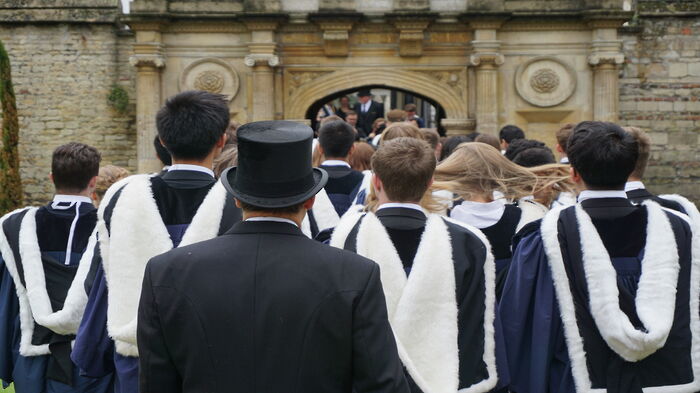
Don’t use the pseudo-politics of politeness to deflect scrutiny
In the wake of last week’s CUSU elections, Ed McNally argues that we cannot undermine the concerns of students who sense that anti-racism is being tokenised

Last week’s CUSU elections saw the highest ever number of votes cast, with every sabbatical officer position contested. In many ways, this is progress to be celebrated, as in recent years engagement in Cambridge student elections has been embarrassingly low. People might even take these developments to be representative of the growth of a more vibrant and democratic political culture around CUSU. They’d be wrong to do so.
Democracy on campus should mean political contestation and serious debate. It should face up to the real antagonisms and legitimate anger that result from structures of injustice, exploitation and exclusion, rather than seeking to paper over the cracks by feigning consensus. CUSU’s Elections Committee makes this kind of open political process difficult enough to conduct. Rules which are in theory designed only to stop personal attacks and ‘slander,’ lend themselves in practice to de facto tone policing and fear of sharp political or policy criticism.
This desire to avoid antagonism and conduct elections and the debates surrounding them harmoniously indicates a deeper malaise in political culture on campus. Centrism is dying a well-deserved death across Europe and America. In national political life, this brand of politics delivered us the ravages of illegal war, the racist security state and accelerated privatisation, along with the scraps of some domestic social amelioration. Now, having been forced into marginality, it casts around in the dark, devoid of project or purpose, sustained only by a conservative instinct to shore up the status quo.
Centrist student politicians nationally are bound to Blair’s ghost, forging political alliances around opposing free education and fanatical devotion to the European Union. In Cambridge, however, the tendency of ‘moderate’ candidates is to gesturally stress common cause and ideological similarity with what is often termed the ‘activist left’.
“In Cambridge, however, the tendency of ‘moderate’ candidates is to gesturally stress common cause and ideological similarity with what is often termed the ‘activist left’.”
This can produce rather strange political platforms, whose overriding sense is one of general satisfaction with the status quo and contentment with tinkering around the edges within the confines of the University’s bureaucracy, alongside radical tick-box exercises – generally opposing the Prevent duty and supporting ‘Decolonisation’.
The difficulty is that these causes are not mere slogans. They are anti-racist projects which seek liberation through structural transformation. Particularly in a place like Cambridge, organising around anti-racist and anti-colonial politics can be a tremendous challenge. It requires constant, dedicated work. And this committed organising is disproportionately carried by students of colour, women in particular. Coupled in manifestos with neoliberal appeals to vaguely defined student experience, commitments to anti-racism can unsurprisingly become sanitised – opposing only ‘aspects’ of Prevent or casting decolonisation as diversification of curricula – and ring hollow.
In this context, anger amongst student campaigners who sense that anti-racism is being tokenised to dress up an otherwise rather lifeless politics is hardly surprising. To deride these deep-seated and legitimate concerns as toxic, petty, or even abusive suggests a deep contempt not only for students of colour (many who have raised concern are prominent anti-racist organisers in Cambridge and nationally) but for democratic politics.
Especially with narrow margins, victory in a democratic election doesn’t mean that accountability and antagonism cease when the ballot box closes. Quite the opposite; our representatives, in CUSU as in all other political structures, should have their feet held to the fire and be held accountable for carrying out their manifesto promises, especially on such serious issues as Prevent, which has seen Muslim students stripped of basic civil liberties and intimidated into political silence.
Condescendingly preaching the pseudo-politics of politeness and civility to students who have to struggle against both everyday and structural manifestations of racism is nothing more than a cowardly attempt to deflect scrutiny. It cynically conflates sharp political criticism with personal attacks, and in doing so helps mask the vacuity of centrist politics.
Students who consider themselves progressives and yet recoiled from the controversy surrounding the Education Officer election, or dismissed criticism of their candidate as “far-left” activists refusing to sit down quietly and take the result, should think twice. Besides one (wholly unserious) Cambridge Defend Education post, there has been no suggestion that any of us who supported Howard Chae contest the legitimacy of Ali Hyde’s victory. But student unions at their best stand up for the marginalised and disenfranchised: in Cambridge, this is an especially urgent duty. For many, listening would be a good place to start.

All the election news, in one place
Comprehensive news and analysis on the CUSU/GU elections, collected.
Visit Varsity’s Elections 2019 hub.
 News / Clare Hall spent over £500k opposing busway 24 December 2025
News / Clare Hall spent over £500k opposing busway 24 December 2025 News / Caius mourns its tree-mendous loss23 December 2025
News / Caius mourns its tree-mendous loss23 December 2025 Comment / The ‘class’ of Cambridge24 December 2025
Comment / The ‘class’ of Cambridge24 December 2025 Comment / Yes, I’m brown – but I have more important things to say22 December 2025
Comment / Yes, I’m brown – but I have more important things to say22 December 2025 Interviews / Politics, your own way: Tilly Middlehurst on speaking out21 December 2025
Interviews / Politics, your own way: Tilly Middlehurst on speaking out21 December 2025










